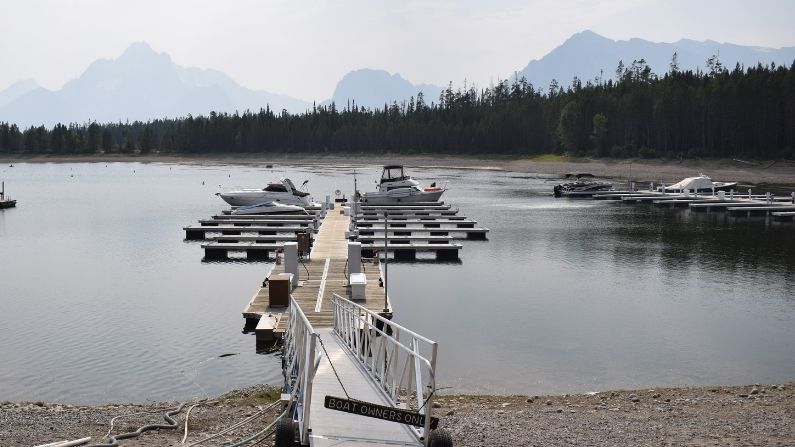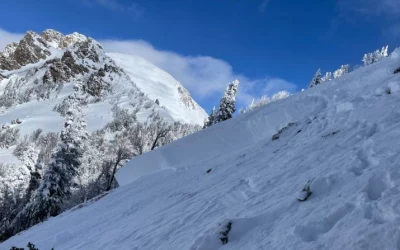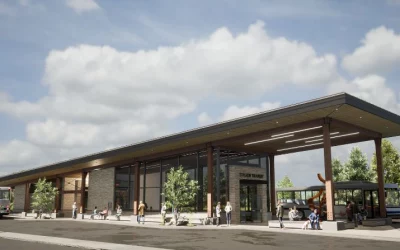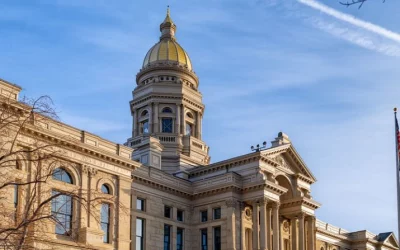Fight to Expand Medicaid Continues
The push to expand Medicaid in Wyoming failed this legislative session. It was introduced as a budget amendment in the State Senate, but didn’t pass due to both procedural reasons and the fact that many lawmakers are still not convinced that enlarging the federal healthcare program would be a good idea. Despite the setback, many advocates, including R.J. Ours of the American Cancer Society Cancer Action Network, say they remain hopeful.
“Overall, we’re not daunted. We’re not disappointed,” he said. “We feel very invigorated with the momentum that we think the issue has.”
A poll from last fall shows that more than two-thirds of Wyomingites support expanding Medicaid, which would provide insurance coverage for an estimated 24,000 people. Ours said that, in the world of cancer treatment and prevention, it would be a game-changer.
“If you fall into that opportunity to get insurance coverage, maybe for the first time in your life, what an empowering thing that is,” he said. “If you’re of age, you can get screened for cancer, you can get annual physicals, you can get your normal vaccinations. You know, all these things are covered if you have Medicaid, just like they are if you have market-based insurance.”
States that have expanded Medicaid tend to have higher rates of health screenings, and at least one study also points to lower mortality rates among cancer patients. Ours said organizations across Wyoming will continue to educate voters and lobby lawmakers in advance of next year’s legislative session.
Unwelcome Visitor Reaches Yellowstone Boundary
A Montana angler caught a smallmouth bass just a few feet from the boundary of Yellowstone National Park on the Gardner River earlier this month. That’s the closest the species has ever been to the park’s borders, and the catch poses a threat to native fish in the area, according to the nonprofit publication WyoFile.
In response to this recent discovery, Yellowstone fisheries biologist Todd Koel said smallmouth bass reaching native trout streams would be “a nightmare” because of their ability to crowd out other animals. He also said that scenario is likely to play out.
Smallmouth bass are native to the Great Lakes Region but have slowly spread across North America in recent decades, now finding their way into many Wyoming river systems, especially as they’ve warmed up over time.
Wyoming State Legislature Update
The Wyoming State Senate defeated a bill Monday that would have criminalized women who use certain drugs while pregnant. Proponents hoped that the legislation would support kids and mothers by disincentivizing the use of controlled substances like methamphetamines or narcotics. But Anthony Bouchard (R-Cheyenne) gave an impassioned speech on the floor, citing research that shows that making drug addicts felons doesn’t help long-term.
“If we make them felons, if we even hint at making them felons, it’s just going to cause more harm,” he said. “A lot of these women have other children. If we start separating families, we start causing a lot of problems here.”
Other bills that have failed as of press time include a ban on the practice of crossover voting and the prohibition of chemical abortions. A proposal that would have banned transgender women and girls from participating in sports that match their gender identity also did not pass.
In terms of what has gotten through the legislature, Gov. Mark Gordon signed a bill aimed at strengthening juvenile justice data reporting Tuesday and a property tax relief option for counties awaits his signature Friday.
Settlement Reached over Hoback Water Quality Issues
The State of Wyoming and the owners of the Hoback RV Park have reached a settlement agreement to help address water quality issues in the area. Crowley Capital LLC will pay $100,000 to directly fix violations found in a 2020 investigation by the state Department of Environmental Quality, which included faulty septic and wastewater treatment systems. The company will also pay an additional $300,000 to investigate groundwater in the area, as well as look into creating a water and sewage district in Hoback. Water issues in Southern Teton County came to a head just over a year ago, when residents of the RV park were evicted in part over these issues, including levels of nitrates found in drinking water exceeding state health standards.
Jackson Lake to Remain Low
Water managers from western Wyoming and eastern Idaho gathered Tuesday to talk about the Snake River reservoir system, a massive network that serves farming and recreation in the area. Last year, drought made headlines when Jackson Lake dropped to historically low levels to support interests downstream. Now, another relatively dry winter means reservoirs are currently projected to be at 60% capacity by spring–compared to 88% last year. Resources manager for the Upper Snake River Basin Brian Stevens said that means water will continue to be a scarce resource this coming summer and fall.
“There’s potential, increased potential, for us to totally drain the reservoir system this year,” he said. “The irrigation districts, they have that water. They are entitled to that and we make those deliveries when they’re called on.”
So, Jackson Lake will remain low. The Colter Bay Marina is unlikely to open this summer, according to the Jackson Hole News&Guide, and other boat launches will also likely see shortened seasons.
Oil and Gas Industry Challenged Over Calls for Subsidies
The nonpartisan conservation organization the Center for Western Priorities held a media briefing Wednesday to counter what they describe as a public relations campaign by U.S. oil and gas producers calling for more subsidies and greater access to public lands amid the war in Ukraine. The nonpartisan budget watchdog group Taxpayers for Common Sense also weighed in, represented by Vice President Autumn Hanna.
“The simple truth is that oil and gas companies will say they need more taxpayer subsidies in just about every circumstance, including the current situation in Ukraine,” Hanna said. “However, when it comes to oil and gas, we are largely energy independent from Russia. The U.S. does not import any natural gas currently from Russia and imports of crude oil made up only 1% of total U.S. crude over the last decade.”
Scores of prominent Republican politicians, including a coalition of 25 governors, have been calling on President Biden to boost American oil and gas production since Russia launched its unprovoked attack on Ukraine. Hanna said the U.S. was already a net exporter of petroleum in 2020 and 2021, and that new production records are expected to be broken this year. Producers are also sitting on a stockpile of drilling permits across federal and tribal lands that amount to an area larger than the State of Kentucky but aren’t currently being used, according to the Center for Western Priorities.
How Will Climate Change Impact Visitation to Public Lands?
Researchers are trying to better understand how climate change will affect visitation to public lands, including national parks. Emily Wilkins is a social scientist with the U.S. Geological Survey who presented her work during a webinar hosted by a division of the National Park Service Wednesday.
“We are expected to see a percent change in visitation by 2050 between a decline in about 17-28% in the summer, so fewer visitors in the summer,” she said. “In the winter, we would see kind of the opposite. About 12-20% more visitors in the winter and then between 5-9% more visitors in the spring by 2050.”
That’s the national estimate, but regionally, the Upper Colorado Basin, which includes the Tetons, is the only area expected to see a decrease in winter visitors–which Wilkins said could be tied to a lack of good ski conditions. The research also shows that public lands may need to prepare for longer peak seasons and providing more visitor services during the current off-seasons.





